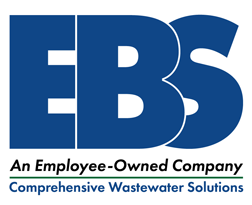Industries | Who We Serve

Pulp and Paper
Since 1997, EBS has performed system evaluations, conducted operator training, and responded to wastewater treatment upsets in the pulp and paper industry. EBS provides specialized on-site support ranging from on-going monitoring and technical support to emergency support during upsets and system failures.
Our Wastewater Specialists can perform various wet chemistry tests at client sites. On-site testing includes ammonia, phosphorus, chemical oxygen demand (COD), total suspended solids (TSS), pH, and nitrate. Our specialists can also check the health of the biology in the wastewater system by conducting a microscopic exam, as well as measuring Dissolved Oxygen Uptake Rate (DOUR) to determine how active the bacteria are in the system.
EBS is one of the most respected companies in the industry when it comes to monitoring and troubleshooting aerated stabilization basins (ASB’s) in the pulp and paper industry. EBS also has extensive experience in supporting industrial activated sludge systems.
EBS brings a wealth of knowledge and expertise to you when you need it. From tracer studies and depth surveys to laboratory analyses to upset remediation, our goal is to develop the data you need to make good business decisions. EBS helps you maintain compliance without breaking your budget.
EBS is also a leading supplier of wastewater nutrient formulations and biological additives. Our Bacterial Acceleration Chamber (BAC and BAC2) technologies have set a new standard for bioaugmentation in Aerated Stabilization Basins (ASBs) in the North American pulp and paper industry.
A key differentiation for EBS is how we view our product line in the context of our overall business model. Most product suppliers rely predominantly on product applications for their revenues, often providing whatever services and technical support necessary to obtain and retain the product application. At EBS, we see our nutrient and bioaugmentation product revenues as natural extensions of and complements to our consulting services.

Petrochemical
Petrochemical (Chemical Processing Plants and Refineries) wastewater treatment plants can face a variety of challenges with waste streams produced from normal production. Some streams contain toxic/inhibitory compounds that can have a detrimental impact on the natural biomass in a treatment system.
EBS provides advanced analytical testing which can help determine the impact of these compounds on a wastewater system. Once identified, EBS provides specialized on-site support ranging from ongoing monitoring and technical support to emergency support during upsets and system failures.
Petrochemical wastewater treatment plants are prone to nitrification issues. Nitrification is the biological oxidation of ammonia, first to nitrite and then to nitrate. It is carried out in activated sludge systems by two unique types of bacteria – Nitrobacter and Nitrosomonas. These bacteria are sensitive to environmental conditions such as cold temperatures which inhibit their growth. EBS produces a premium variety of nitrifier blends that can aid in recovery from an upset.
EBS brings a wealth of knowledge and expertise to you when you need it. From analytical testing, operator training, system evaluations, bioaugmentation, or responding to wastewater treatment upsets, we are there to support you and assist in the system recovery.

Food and Beverage
The food and beverage industries frequently face wastewater system upsets due to their cleaning and sanitizing practices. Compounds such as quaternary amines, peracetic acid, and surfactants are common components of their Cleaning in Place, or CIP, processes. These products are used in large quantities to ensure proper sterilization of food processing equipment. However, these compounds can have a detrimental impact on wastewater treatment. These compounds are toxic or inhibitory to the natural biomass in an activated sludge system.
EBS provides advanced analytical testing which can help determine both the quantity of chemicals making their way to wastewater, as well as their impact on the biomass. Once identified, EBS provides specialized on-site support ranging from ongoing monitoring and technical support to emergency support during upsets and system failures.
EBS brings a wealth of knowledge and years of expertise to you when you need it. From analytical testing, operator training, system evaluations, or responding to wastewater treatment upsets, we are there to support you and assist in the system recovery.
Toxicity and inhibition of the bacterial population are increasingly being identified in many industrial wastewater plants. EBS’ Advanced Analytical Lab is dedicated to identifying the compounds contributing to toxicity and inhibition, which results in the biological step of the wastewater treatment process not functioning to its full ability.

Municipal
Municipal wastewater treatment plants can face a variety of challenges depending on the source of the wastewater(s) they need to process. Even traditional domestic wastewater can contain problematic substances such as household cleaners, but the industrial contributors add new complexity to this challenge. Some streams can contain toxic/inhibitory compounds that can have a detrimental impact on the natural biomass in a treatment system.
EBS provides advanced analytical testing which can help determine the impact of these compounds on a wastewater system. Once identified, EBS provides specialized on-site support ranging from ongoing monitoring and technical support to emergency support during upsets and system failures.
EBS experts can troubleshoot both aerated stabilization basins (ASB’s) and a wide variety of different types of activated sludge systems. EBS brings a wealth of knowledge and expertise to you when you need it. From analytical testing, operator training, system evaluations, bioaugmentation, or responding to wastewater treatment upsets, we are there to support you and assist in the system recovery.
